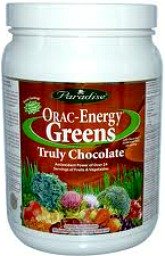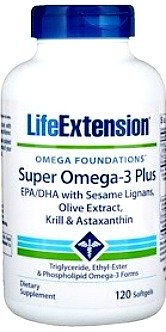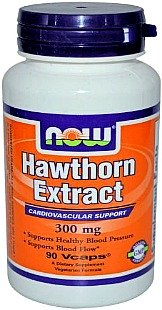Pericardiocentesis for fluid extraction and analysis
Pericardiocentesis or pericardial tap is a procedure during which the fluid is removed from the sac around the heart, the pericardium. It is done with a needle, a catheter and usually with a ultrasound to get a better view of the needle trajectory as well as to decrease the risk of complications.
In situations where is a need to draw more flud from the pericardium, similar procedure known as pericardial window is done. During this procedure, part of the pericardium is removed and the chest tube is placed, in order to drain more fluid.
WHAT IS IT USED FOR
Pericardiocentesis is used to:
HOW TO PREPARE FOR PERICARDIOCENTESIS
First, you will need someone to take you home after the treatment. You should bring all the previous tests and tell your doctor which medications you are taking, before the test. The doctor will tell you which ones you can or can't take, in order to prevent any complications during the test.
This also applies for supplements. If you are allergic to anything, tell your doctor. Besides medications, foods you eat as well as what you drink, may also affect the test. You shouldn't eat or drink for 6 hours before the test. However, you can consult with doctor, regarding this one.
When it comes to clothes, you can wear whatever you want, since you will be given a gown, in the hospital.
WHAT TO EXPECT DURING PERICARDIOCENTESIS
You will lie down on a table after which the doctor will give you a mild sedative to help you relax. This will prevent moving and twitching during the process which is very important since a needle will be inserted into your heart. However, you will be awake and conscious during the process.
The doctor may also use local anesthetic to numb the area on your chest, where the needle will be inserted. An IV will be attached to your arm in order to administer the medications or the fluids intravenously, if needed.
While inserting a needle, the doctor may use ultrasound or x-ray to make sure that catheter is where it should be. After this, he will drain the fluid, accumulated around the heart. When all the fluid is removed, the catheter will be removed.
The procedure may last from 20 to 60 minutes, depending on the amount of fluid being extracted.
WHAT ARE THE RISKS OF PERICARDIOCENTESIS
Although the test is very safe, especially when done in combination with ultrasound or x-ray, there are a couple of risks involved. Procedure may:
WHAT TO EXPECT AFTER PERICARDIOCENTESIS
After the test, the doctor will monitor you for several hours. If the procedure hasn't been successful, another more invasive treatment may be needed to drain the fluid around the heart, in order to ease the pressure. In this case, procedure such as surgical pericardiocentesis or pericardial window may require anesthesia.
Although the test lasts from 20 to 60 minutes, the catheter can be left in place for several hours, in order to drain the fluid completly.
- Heart Healthy Diet: Simple Tips and Guidelines
- Learn everything you need to know about heart healthy diet and find the right one for you. Implement few simple tips for immediate benefits.
- Heart Healthy Foods: How to Get the Most from Them
- Heart healthy foods can improve cardiovascular system function. Foods good for the heart are bursting with vitamins, minerals and rejuvenating phytochemicals.
- Herbs for the Heart and Cardiovascular System
- You have heard for hawthorn and garlic but there are few other herbs for the heart which can help in treating heart disease, naturally.
- The Best Heart Health Supplements
- Besides fish oil, there are several heart health supplements which can be useful. This includes Coenzyme Q10, Salicin, vitamin D3 and few others.
- Heart Healthy Spices
- Although there are many heart healthy spices out there, each of them can help prevent and treat heart disease in its own way, thanks to different types of flavonoids in these heart spices.
- Stress and Heart Disease: How are They Connected
- Stress and heart disease are closely related. In order to decrease the risk of heart problems, we have to learn how to handle the stress and treat its consequences, if we are unable to avoid it.
- Cardio Exercises for the Heart and Cardiovascular System
- Cardio exercises are vital part of natural heart disease treatment. However, which kind of heart exercise you should preform, varies from person to person.
- Good vs Bad Cholesterol: How to Improve Cholesterol Values
- Good vs bad cholesterol conflict is somewhat misunderstood. There is no good or bad cholesterol but only high or unbalanced cholesterol.
- Good Fats vs Bad Fats: Nutritional Facts and Guidelines
- What is the real truth when it comes to good fats vs bad fats? How much dietary fats should you consume daily and what are the best food sources of healthy fats?
- High Blood Pressure Remedies
- High blood pressure remedies range from tips and lifestyle modification to herbs and supplements. However, the method that works for someone else, may not work for you.
- Normal Heart Rate: How is Regulated and Influential Factors
- Normal heart rate varies from person to person. Although, age affects resting heart rate, there are many other factors that can raise or decrease heart rate.
- How to Lose Fat: Overlooked Tips for Weight Loss
- How to lose fat is surely one of the most intriguing questions for so many people. However, the answer is very simple. Eat healthy foods, perform fat burning exercises and take care of your hormones.
- Hormones and Heart Disease Connection
- Don't neglect hormones and heart disease connection. If you want to treat or prevent heart disease you have to balance your hormones.
- Heart Disease and Immune System Connection
- Heart disease and immune system connection is often overlooked, while trying to improve cardiovascular system function. However, there are several things you can do to change this.
- Dental Health Heart Disease Connection: Facts and Tips
- Dental health heart disease connection is one of three overlooked factors, along with hormones and immune system. However, with smart and effective approach we can change this.
- Causes of Heart Disease
- There are many causes of heart disease and factors that can increase or decrease your risk for developing heart related problems. Check how to turn the tide in your favour.
- Symptoms of Heart Disease
- There are few main symptoms of heart disease. Find out which are they, how to recognize them as well as my personal experience with some of them.
- Diagnosis of Heart Disease
- Accurate diagnosis of heart disease is the first step toward recovery. You can't start with treatment before you know what kind of disease you have, obviously.
- Treatment for Heart Disease: Medications and Surgeries
- Standard treatment for heart disease consists of surgeries, medications and devices. Which one is right for you, depends on your condition.
- Heart Disease Blog
- This is a blog about natural remedies, personal stories, helpful herbs and supplements, workout program as well as other tips and facts which may help people faced with heart disease.
- Contact Me
- Ask questions and leave comments about this site here.
- About the Author of Heart Health Guide
- About the author of Heart-health-guide.com website.
- Heart Health Guide Sitemap
- This is sitemap of Heart Health Guide.com. If you want to get better overview of informations on this website, you can get it here.
Copyright © - Heart Health Guide - All Rights Reserved.



